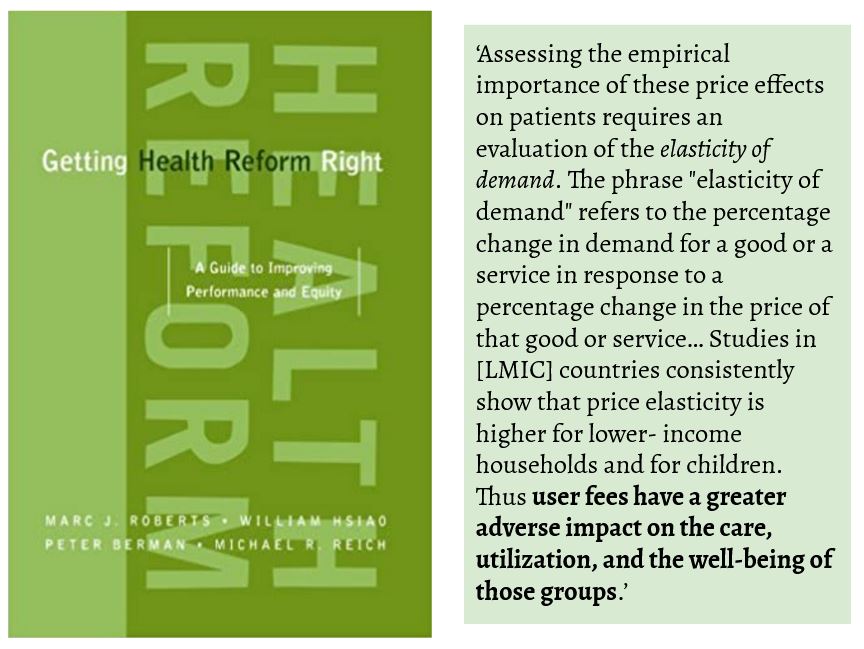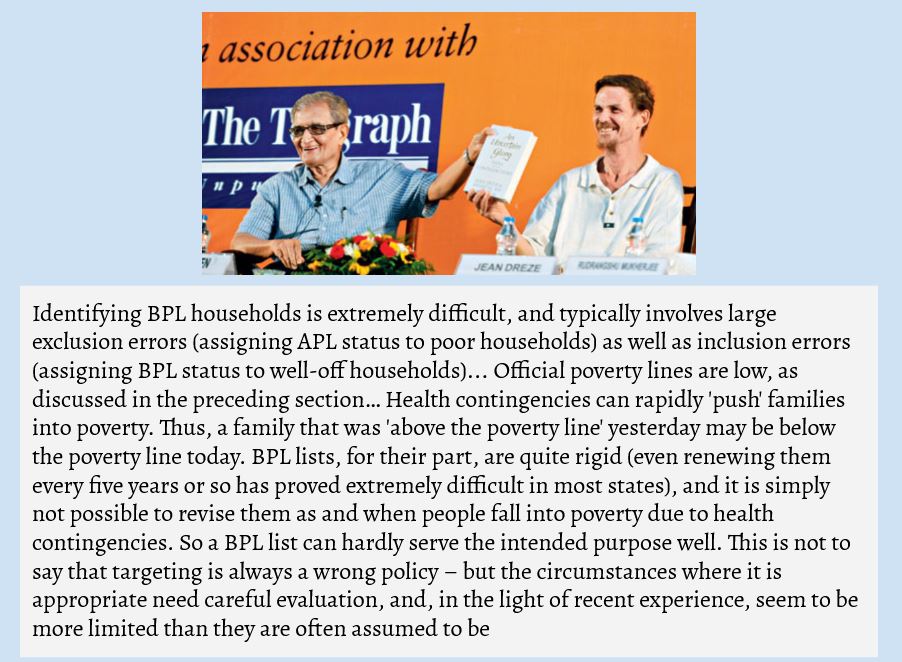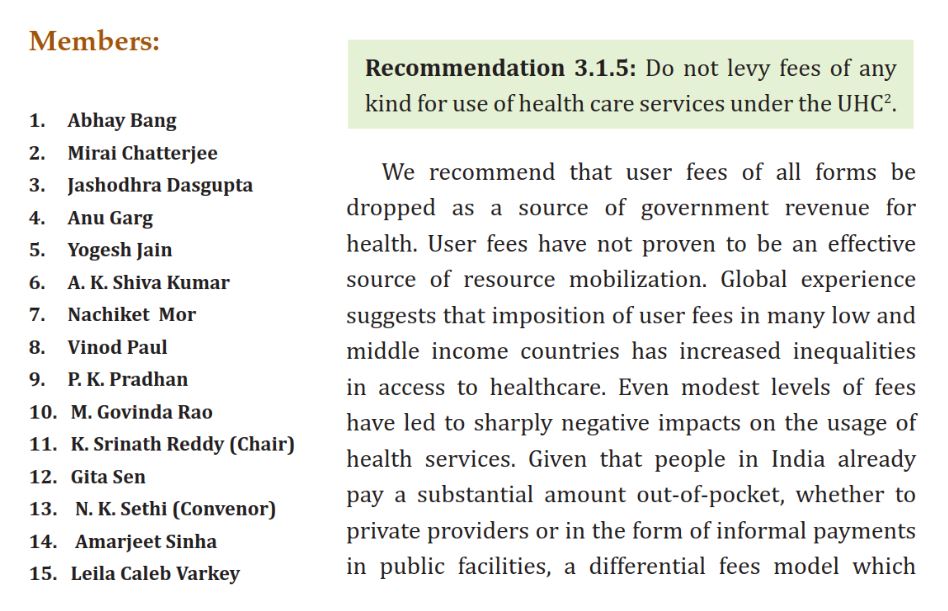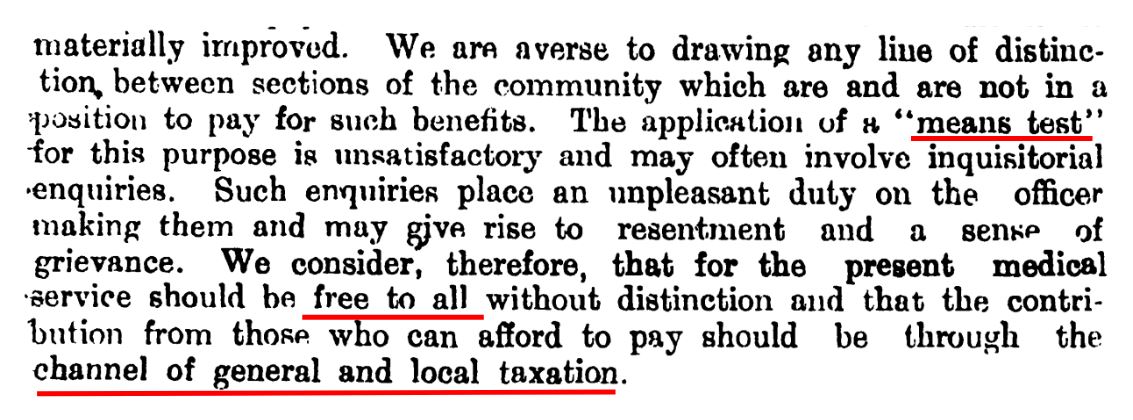
'Free' vaccination
Some ppl, for good reasons, believe that vaccines should not be made available free for all but only for the 'poor'. It's very noble when ppl volunteer to pay for services. If u wanna pay for vaccines, go ahead!
But still, let vaccination be 'free' for all...
Some ppl, for good reasons, believe that vaccines should not be made available free for all but only for the 'poor'. It's very noble when ppl volunteer to pay for services. If u wanna pay for vaccines, go ahead!
But still, let vaccination be 'free' for all...
Privileged ppl who wish to pay have multiple ways to contribute even if vaccines are free at the point of service. One cud, eg, go to a govt hospital or an NGO and donate there. Besides, EVERY person in India pays taxes, direct &/or indirect, thus also 'paying' for their vaccines
We need to get rid of d flawed notion that when govts make a service free, they are doing us a favor, or that they are encouraging free-loading. (It is in fact ministers, MPs, MLAs, with som exceptions, who perhaps do the most free-loading in India, but that's a diff discussion.)
In public health terms, there is a lot of evidence that shows that 'user fees' at the point of service reduces accessibility and utilization of the service. (All of us sure like cashless insurance more than reimbursements, isn't it?)
Paying for vaccination = user fees
Paying for vaccination = user fees

Some more evidence on this, from the invaluable experience of Doctors Without Borders: msf.org/8-ways-user-fe…
The organization Partners in Health, which has done commendable work on providing high quality healthcare in many countries, also advocates for the elimination of user fees.
pih.org/article/why-th…
pih.org/article/why-th…
Pertinent to our current point, Roberts, Hsiao et al (authors of the green book above) also contend that "services that reformers particularly want to encourage—like vaccination and prevention— should probably not be subject to user fees at all."
Here the idea of asking ppl to produce some ration card etc. to show they are low-income, & provide free vaccines only to them, is appealing to many. But it is an implementation nightmare, & often indirectly increases costs by needing additional bureaucracy & admin staff
Besides, as Dreze and Sen have elegantly written in 'An Uncertain Glory: India and Its Contradictions', such poverty-identification schemes often have serious issues: 

As for user fees, even the Planning Commission's 2011 High Level Expert Group for UHC suggested their elimination. 

Most imp, these issues were acknowledged even by our founders, who very wisely made public hospitals and clinics affordable for all irrespective of their income. The 1946 Bhore Committee also wasn't keen on using poverty tests ('means test') & fees at the point of service 

The "channel of general and local taxation" mentioned in the Bhore report brings me back to where I began: just because vaccines are 'free' at the point of service doesn't mean people - including poor people - are not paying for them.
And all others who wish to do more and pay for the vaccine, have so many avenues to channel their charity, including paying taxes. But I believe that advocating "Don't make vaccination free for all" is not the right channel for a country like India - & in fact for most countries.
Finally, it is very imp to remember that even with 'free' vaccination, the majority of Indians will probably pay a lot in other ways - transportation, waiting in long lines, informal bribes, lost wages.
The way I see it, if Central and state govts think of vaccines as a public health and welfare activity, they will make vaccination free for all, the way many nations across the world - even those far richer than us in per capita income - have already done.
• • •
Missing some Tweet in this thread? You can try to
force a refresh



